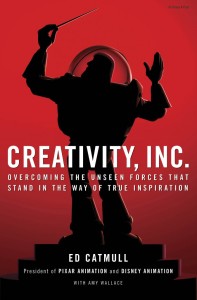The following can always be found under my “About” page, but I thought it would make a good first post as well:
My name is Larry – I am fifty years old this year (2014), and I just learned that I was dropped by a delivery doc when I was born, and caught on some canvas (a laundry bag?) by some sharp reflexed attendant. Had I landed on my head, it would have better explained some things in my life!
I have been leading and guiding creative teams for the majority of my career – though I hadn’t realized that to be my career thread until relatively recently. I am not happy unless I am working with people and a project.
My work experience spans design, publications, process management, communications, marketing, education, technology integration, software development and implementation, as well as online course development and eLearning.
What’s up with the name of my site, you ask?
Anicca = Pali for the Buddhist concept of “impermanence”
Collab is short for “Collaboration”
The terms represent, for me, just a couple of the very few things that I have come to understand:
1) Uncertainty, change (impermanence), is fundamental to reality, and true to the process of creativity, developing something new. Being comfortable with uncertainty and change is not easy, but to work toward that, to work within that understanding, is essential to the creative process.
2) Collaboration, people working together toward a shared goal, is also a vital component in the design and development process, the creation of something new, and one answer to our discomfort with uncertainty and change. A collaborative team can find that place where the unknown represents possibility instead of fear.
This site is meant to be two things: one for me, and possibly one for you.
For me it is a place to explore my thinking and experimenting with coaching, managing, and working with creative teams. I am an Agile enthusiast and a student of Design Thinking – both are approaches toward development which I feel are aligned with what I have experienced, learned, and understand about people, change, and collaboration (teams).
For you, perhaps the site is a place to explore as well, and share with me your thinking, your challenges, your experimentation and your learning. I would welcome that.
Or, perhaps you are finding yourself challenged in your business or organization, around people management, project management, teams or leadership or strategy or process. I would like to offer my help. I’d be willing to listen, consult, coach, and collaborate on solutions to get you and your team moving forward again.
FYI: This is my first real, personal, site or blog, my first foray as an independent into the shared realm of learning and understanding that is the Internet. I am uncertain! And it is guaranteed that this will all change! But that is just how it is, and part of the fun : )


Recent Comments